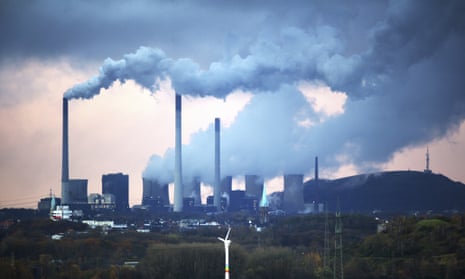European countries must not allow industry experts in their national delegations to lobby for weaker coal standards, the European commission’s top environment official has said.
The move follows revelations by the Guardian that big energy lobbyists included in British delegations to Brussels mounted a sustained and aggressive drive for weaker limits on toxic pollutants that are responsible for over 20,000 deaths a year in the UK alone.
The new instruction by the commission’s director-general for the environment, Karl Falkenberg, was outlined in a letter to his counterparts in all 28 EU countries, dated 20 May and seen by the Guardian.
Falkenberg said that lines dividing national representatives, industry experts and NGOs should be strictly adhered to in the technical working groups (TWGs) that negotiate emissions standards.
“Whilst nothing precludes that the industries concerned or NGOs can assist member state representatives in exchanging information, it must be clear that during TWG meetings and indeed, in all other TWG proceedings, a member state representative presents the views of its national authorities,” he wrote.
Industry experts and NGOs in national delegations “should ensure that their expressed views are fully consistent with the views of their member state,” he added.
A Greenpeace analysis earlier this year found that most of the 352 working group members tasked with drawing up new air pollutions controls were either employed by the companies being regulated, or by lobby groups representing those companies. Five out of the UK’s nine-strong delegation worked for big energy firms such as RWE, EDF and E.On.
Although such members are not supposed to negotiate, in practice the Guardian discovered that they made multiple comments, requests and lobby pushes, focused on the purported costs of tighter pollution standards for their businesses.
They also advanced measures to weaken limits for nitrogen oxide emissions from gas plants.
Louise Hutchins, a campaigner at Greenpeace welcomed the commission’s rebuke to practices that could allow lobbyists to pose as government representatives.
“Thanks to this infiltration, proposed limits on toxic emissions are now so weak they would allow Europe’s coal plants to pollute more than some of their notorious Chinese counterparts,” she said. “The damage has been done, but government officials are still in time to reverse some of it. With tighter rules, thousands of lives and billions in health and economic costs could still be saved in the EU every year.”
A Greenpeace study recently found that the EU’s draft rules for coal plant emissions could result in 71,000 deaths and £52bn in health costs across Europe in the next decade, compared to the best available techniques.
The new pollution standards are expected to be finalised next year.

Comments (…)
Sign in or create your Guardian account to join the discussion